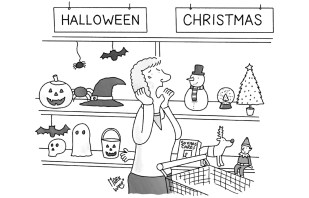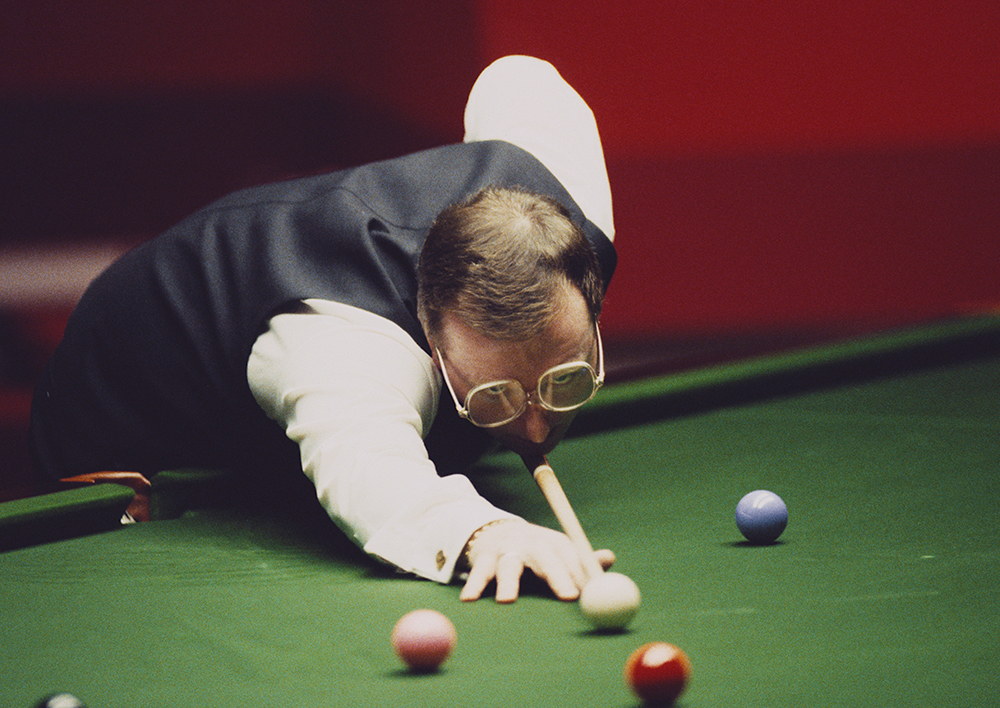
Forty or so years ago, when I was at university, my friends Richard, Terence, Harry and I would often go to the Oxford Union to play snooker. There were two immaculate snooker tables in a large room at the top of the building and almost no one ever went there except for us.
Unfortunately, our enthusiasm was not matched by concomitant talent. On one occasion it took us 34 minutes to pot a single ball. At a certain point in that endless non-break, Terence had an easy pot to a distant hole. Saying ‘I was going to pot the ball, but instead I’m going to do this’, he hit the ball with such misapplied force that it leapt in the air, off the table altogether and very nearly out of the door. Our frames would take hours. Often one or more of us would have to leave to go to a tutorial or a doctor’s appointment or because it was the end of term and it was time to go home. We never got any better, even slightly.
David Hendon’s book is about a rather higher echelon of the game. Everyone in these pages makes century breaks at will, and 147 (15 reds, interspersed with 15 blacks, and then all the colour) was not unknown. I was watching when Cliff Thorburn made his 147, the first ever in the World Championship, and his brutal long yellow into the far left corner pocket later won Shot of the Championship, as we all agreed was only just.
This was the heyday of snooker, when people sat around in pubs and discussed the relative merits of Steve Davis, Jimmy White, Willie Thorne, John Virgo and all the others, and football wasn’t mentioned at all. Hendon is good on the glory years and has spoken to everyone, including a few who are no longer alive. (He has been writing about snooker for more than 30 years.) But he’s also good on the pre-glory years, when the World Championship was either not held at all or fought for all year (and then usually won by Joe Davis, no relation). And on the post-glory years, when a dazzling array of talented players from all over the world are still nonetheless beaten by Ronnie O’Sullivan, who then announces that he hates the game and doesn’t want to play it any more. The three dominant players of the past 15 years, O’Sullivan, Mark Williams and John Higgins, are all about 50 and have grown old in the game’s service. Earlier this year, though, a completely uninteresting young Chinese player won the World Championship, the first completely uninteresting Chinese player to do so, and Britain switched off. Maybe this book will get them switching on again.

One of the best chapters is about the famed 1985 World Championship final between Steve Davis and Dennis Taylor. Davis, who had won three of the previous four World Championships, swiftly opened up a 7-0 lead, and my friend Terence and I went to the pub. I had spotted that Taylor, a journeyman Northern Irishman with a ridiculous pair of glasses, had been playing well all season, and on my advice Terence had put a crafty tenner on him to win at an early stage in the tournament when he was still 25-1.
We sat and drank beer, as you do, then went back to my place to see what had happened. Taylor, it transpired, had pulled the match back to 17-17, with one frame left to play, and we watched this last nervy, error-strewn frame with fascination. I can still remember (as I’m sure you do if you have read this far) the cut Davis needed on the final black, with the white on the cushion, to win the match and therefore the Championship, and how he missed it, leaving Taylor with an easy black, which he knocked in to secure victory. It’s 40 years since these events and I have just welled up typing this paragraph. After Jack Leach’s 1 not out at Headingley in 2019 (if you know, you know), it’s the greatest sporting triumph I have ever witnessed.
Hendon is no great stylist, but if you read this book it won’t be for the prose. It’ll be for the story, which is spectacular; for the analysis, which is surprisingly cogent; and for the deep knowledge and love of the game, which are hard to resist. As Jack Karnehm said on commentary when Taylor stepped up to pot that final black: ‘Oh, good luck, mate.’







Comments